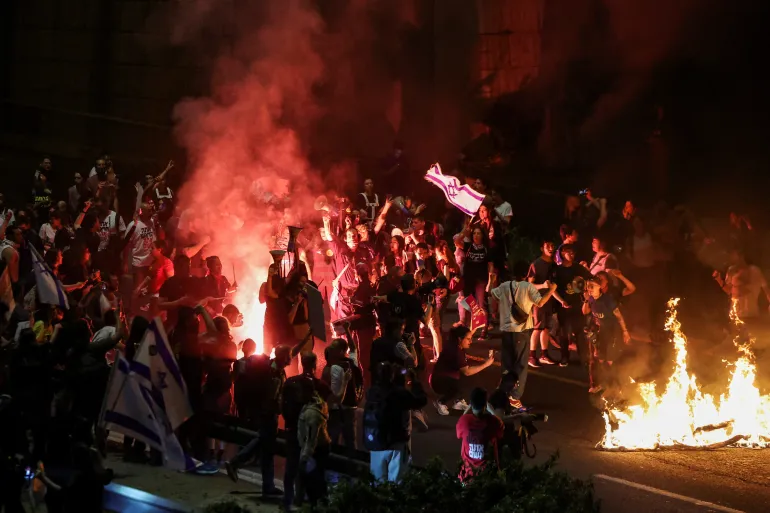
With the majority of people joining marches on the streets of Tel Aviv, while blaming Prime Minister Benjamin Netanyahu of being a weak leader of state, Israel is experiencing a watershed moment, once again. The demonstrations that are growing bigger and more violent since last few months reveal the shear feelings of dismay of Israeli masses, particularly related to Netanyahu Government’s management of ongoing crisis post October 7, 2022. There is an increasing resentment on the way, issue of abducted persons in Gaza is being tackled. In this piece, an endeavor will be made to investigate the reasons behind ongoing protests, the demands of the protesters, the implications of protests on the country’s political situation, and the anticipated international reaction to this situation.
Overview
Sequel to vertical insertion by Hamas on Israel on October 7th, 2022, over 200 Israelis were abducted by Hamas in Gaza. While some of those were released after negotiations/ parleys during temporary ceasefires periods, many still linger in captivity, clamoring for immediate resolution of the issue. The Israeli Government’s indecision on the time and effort allocated to hostages’ return and a possible military escalation in Gaza further fuels the anger and despair in its masses.
Demands of the Protesters
The list of demands of protesters include following aspects:
Several protesters hold Netanyahu accountable for the lack of security which allowed the October 7 attacks to take place as well as for the ongoing hostage crisis. Since then, the demand for him to step down has intensified with protesters being too vocal in their disapproval of what they believe has been his mismanagement of the crisis situation.
Early elections are also being demanded in a bid to bring in power new authorities while breaking away from the old regime. “For them, this is the only way towards real change and power of working in the Government that is accountable for their deeds.”
What is most illustrated by the demonstrators’ demands is the secured return of Israeli captives from Gaza. Protestors expect that the Government should fulfil its obligations in true letter and spirit and as per the aspirations of masses. No military objective of the Government should override the humanitarian considerations of Israeli captives.
Political Implications and International Response
The protests have revealed immense rifts within Israeli Government and society. The cleavages underscore the increased distrust on the ability of Bibi’s Government to govern Israel well. Akin spells of non-confidence have been manoeuvered in past successfully by Netanyahu, who is in Government for a long time now, but this time round the situation appears to be really grave and pressure building on him incessantly. Mr Security of Isreal has been asked to address the public grievances and regain the public trust. Protests have succeeded in coalescing the interest of the international community as well, with some countries openly showing concerns over the ongoing scenario and appealing Israeli Government to exercise restraint.

The USA while abstaining from the vote, actually enabled the UN Security Council to pass a resolution that mandated immediate ceasefire between Israel and Hamas. This choice not only highlighted the international community’s concern for the ongoing conflict but also surfaced a kind of discord between the United States and Israel on the issue of Gaza. Notwithstanding all above, Biden Administration remains committed in bolstering Israel’s defence capability as it is considering US $18 billion arms transfer package to Israel, which would include dozens of F-15 aircrafts.
Also Read: Gaza’s Catastrophe: Can China Mediate a Settlement?
The fact that the United Nations Security Council took the resolution was, therefore, a diplomatic initiative to stop the violence and lay a foundation for a ceasefire agreement in the region. But at the same time, Netanyahu’s public announcement of a willingness to invade Rafah brings about a possibility of an entire upsurge in the conflict and, hence, outweighs prospects for peace while damaging the diplomatic situation between the state of Israel and the other global forces. It is noteworthy that the US’s abstaining from the ceasefire resolution embodies a new stance on the conflict that is tricky, but it can also address some of the long-standing concerns with the US’s traditionally strong support for the Israeli side.
This reduced participation is not only putting stress on Israel for revising its military tactics, but it is also a signal to the global community of no further bloodshed and reaching out to a peaceful resolution to the issue. However, the duplicitous response of international powers remains painful, wherein a lot of attention is though being paid towards Israeli captives but only lip service is being rendered to the human catastrophe in Gaza. It is time that the culprits be brought to justice and humanitarian dimension of this massacre be taken more seriously by the world.
The Role of Media and Civil Society Response
The protests in Israel have attracted significant media coverage in the national as well as international media landscape. The protests movement in Israel has been a subject of scrutiny for news media across the globe as they report on the developments of the demonstrations, in-depth analysis of the underlying issues that sparked the unrest, and input from different participants. Social media platforms have a pivotal role in providing a platform to the protesters besides being a vital source of information proliferation. In conjunction with the protests, Israeli civil society groups have also been actively taking part in the movement to bring about change and giving support to the protesters’ requests. Human rights groups, local organizations and advocacy networks have been able to work together to assist the conflict victims and their calls for accountability and justice have been amplified.
Challenges and Opportunities
The demonstrations not only have organized public opinion but they also are putting pressure on the Government to yield to protestors’ requests. However, the demonstrations are accompanied by many difficulties and uncertainties in Israel’s political future. Whether the protests will bring about the change that is desired is not clear yet and the way to get to the desired change appears to be a difficult and complex one. Concurrently however, the growing uneasiness will afford the much needed venue for conversation, reconciliation. It will also invoke the quest for a more just and fair society in Israel.
Conclusion
Fierce protests in Israel have caused the Government to face swiftly upturning pressure on the Governmental body to implement appropriate adjustments to address the concerns of the citizens and the raging controversy. Whether Prime Minister Netanyahu will heed to the demands of the protesters remains to be seen, but one thing is clear: the disorder involving the country illustrates the general longing for a thorough change and responsibility within the Israeli Government. It is only time that can show whether the protests affect the future of the country and its leadership. The international community is also closely following the developments of this. Still, the hopes for a peaceful solution remain wanting.
The opinions shared in this article reflect the author’s personal views and do not necessarily align with the institution’s official stance.





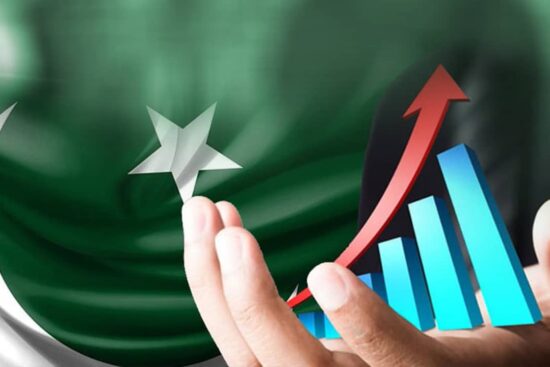
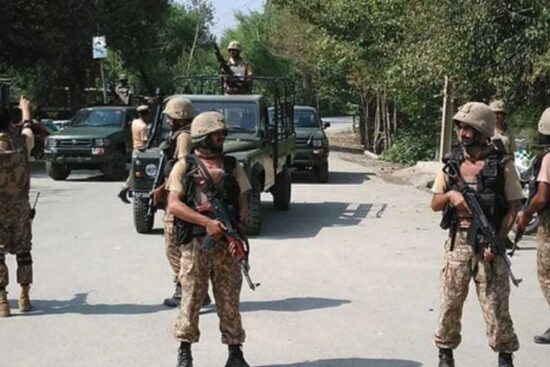
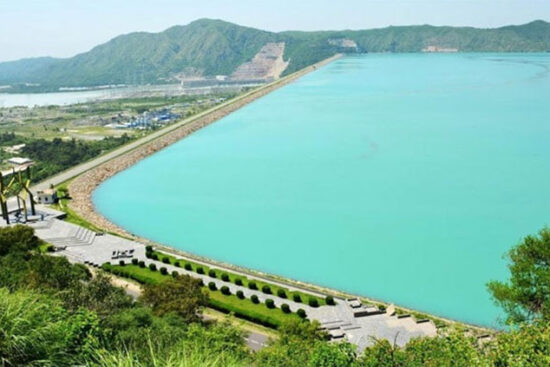
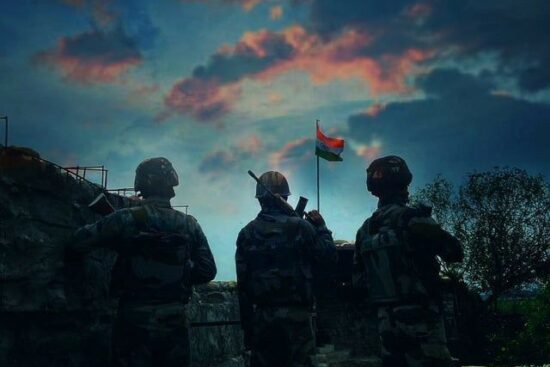








Leave a Reply